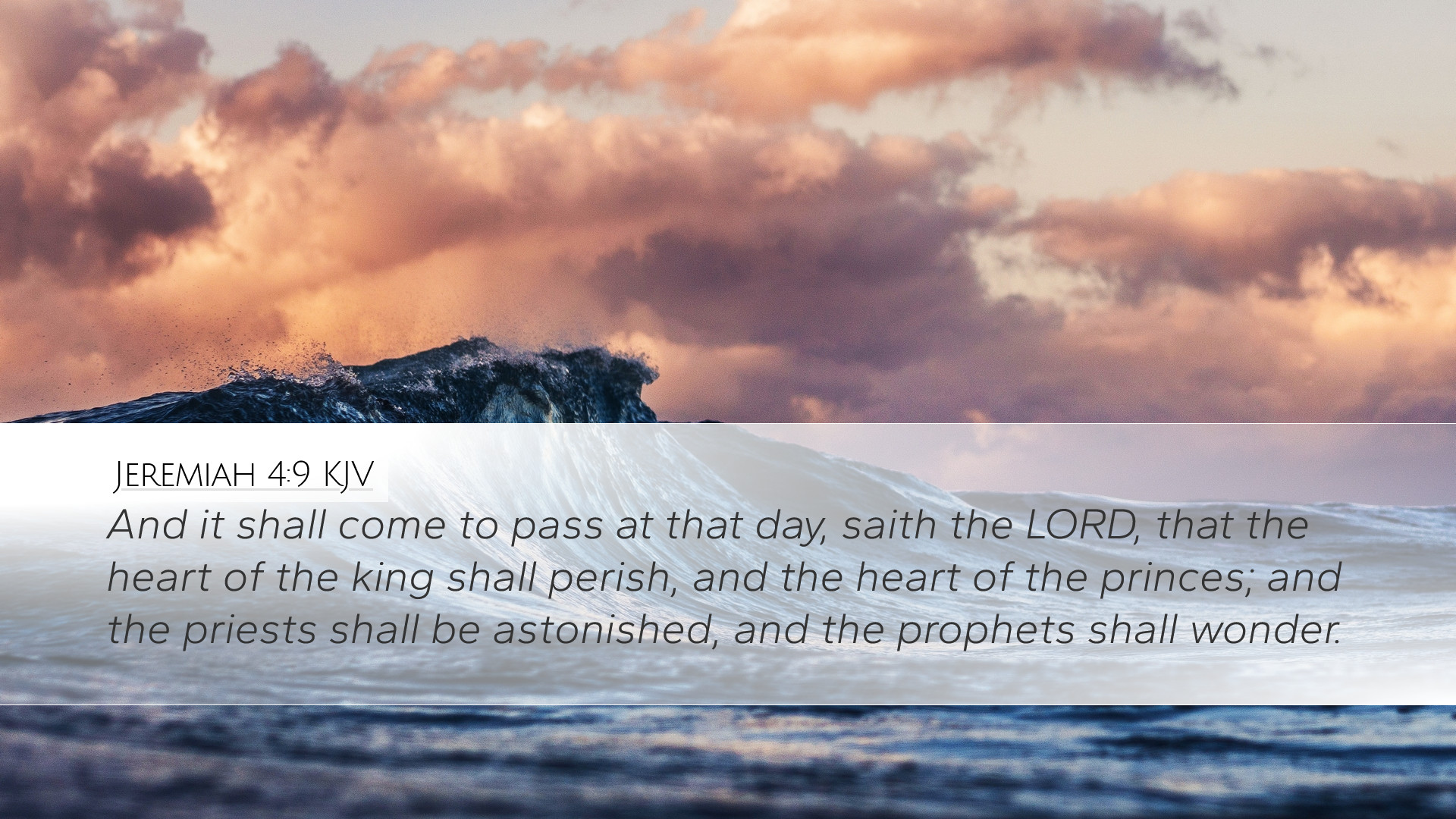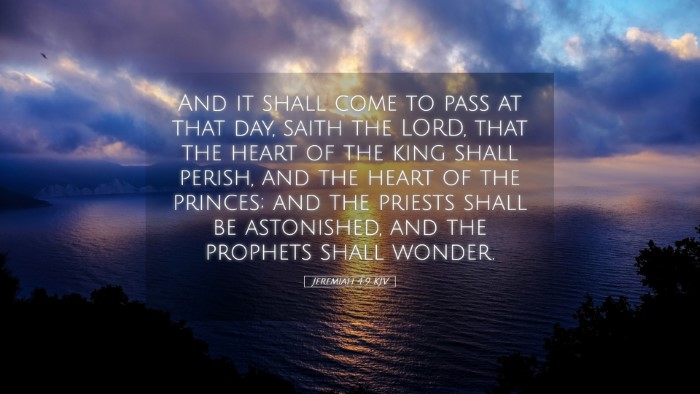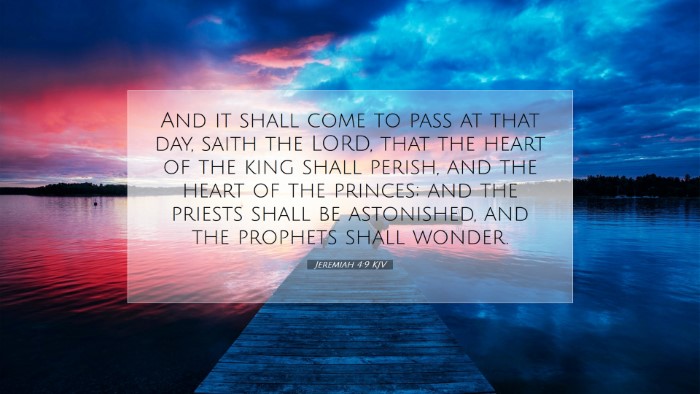Commentary on Jeremiah 4:9
Jeremiah 4:9 states: “And it shall come to pass in that day, saith the Lord, that the heart of the king shall perish, and the hearts of the princes; and the priests shall be astonished, and the prophets shall wonder.”
Contextual Analysis
The Book of Jeremiah, often referred to as the "weeping prophet," addresses the impending judgment upon Judah due to its persistent sin and rebellion against God. This verse specifically highlights a day of catastrophic significance, likely referring to the Babylonian invasion. Such desolation will affect the leaders and spiritual guides of the nation, emphasizing the seriousness of the judgment.
Insights from Public Domain Commentaries
Matthew Henry
Matthew Henry notes that this verse speaks to the deep despair that will consume even the highest leaders of the nation—the king and his princes. Their “hearts shall perish” indicates not just physical fear but a profound sense of hopelessness and moral collapse. The leaders, often seen as pillars of strength, will falter when faced with divine judgment.
Henry emphasizes that the priests, who should be mediators, and the prophets, who should be proclaimers of hope, will also be astonished and left in doubt. This collective dismay illustrates the extent of disruption in the spiritual and political fabric of the nation, highlighting how far Israel has strayed from God's guidance and how bleak the consequences are.
Albert Barnes
Albert Barnes articulates that this verse serves as a prediction of the universal reaction of the leadership during the time of calamity. He points out that the term “perish” suggests a complete loss of courage and conviction, while the astonishment of the priests and prophets emphasizes their failure to bring forth the truth amidst crisis.
Barnes underscores the fact that, in times of great distress, those who should provide stability will be caught off guard. He posits that this demonstrates the necessity of true spiritual leadership that seeks to truly guide the people according to God’s will rather than relying on rituals and former understandings of divine favor.
Adam Clarke
Adam Clarke offers a distinctive view by highlighting how the day of catastrophe will not only result in fear among the leaders, but it will also serve as a striking commentary on God's justice. He points to the failure in leadership that leads to the community's downfall, claiming that when leaders lose heart, the people will inevitably follow.
Clarke remarks that the reactions of the priests and prophets convey an urgency for genuine repentance. In their astonishment and wonder, there is an implicit call for reflection upon their past actions and a recognition of their role in leading the people into sin. This call for introspection, he argues, is crucial for any hope of redemption.
Theological Implications
Theological reflections on Jeremiah 4:9 highlight that it addresses not just the historical context of Judah, but the nature of leadership and its impact on a society’s relationship with God. It underlines the gravity of accountability that exists for those in positions of authority, especially in spiritual contexts.
The verse also serves as a reminder for contemporary leaders—whether in the church or society—about the dire consequences of leading away from divine principles. As such, Jeremiah calls not just for recognition of sin, but for a return to faithfulness as a means of finding hope amidst despair.
Application for Pastors and Theologians
For pastors, this scripture becomes a poignant reminder of the importance of steadfast faith and genuine teaching. Like the priests and prophets of Jeremiah's time, contemporary ministers must strive to convey truth and lead with integrity, ensuring that they anchor their teachings in Scripture and not in societal trends.
The depth of despair among leaders, as described in this verse, should ignite a call to prayer and a commitment to seek God earnestly for guidance and wisdom. Pastors are encouraged to lead their congregations in sincere repentance and restoration, recognizing that leadership carries a weight of responsibility towards the spiritual health of the community.
The implications for students and scholars are equally profound, emphasizing the necessity of studying historical context while also seeking contemporary relevance. Engagement with the themes found within Jeremiah can enhance theological discourse regarding leadership, sin, and divine justice, inspiring ongoing vulnerability and authenticity in ministry.
Conclusion
In conclusion, Jeremiah 4:9 is not merely a historical prediction; it encapsulates timeless truths relevant to all generations. The responses of leaders in the face of calamity reflect deeper issues of spiritual health and communal integrity. By revisiting these insights, we as a community of faith can better navigate our own journeys with an understanding of our accountability to God, thereby fostering a more profound relationship with Him and with one another.


